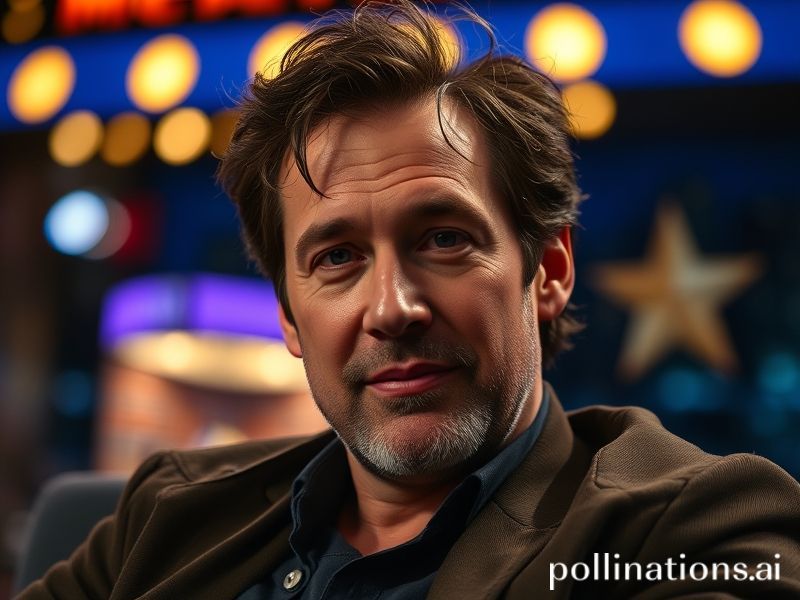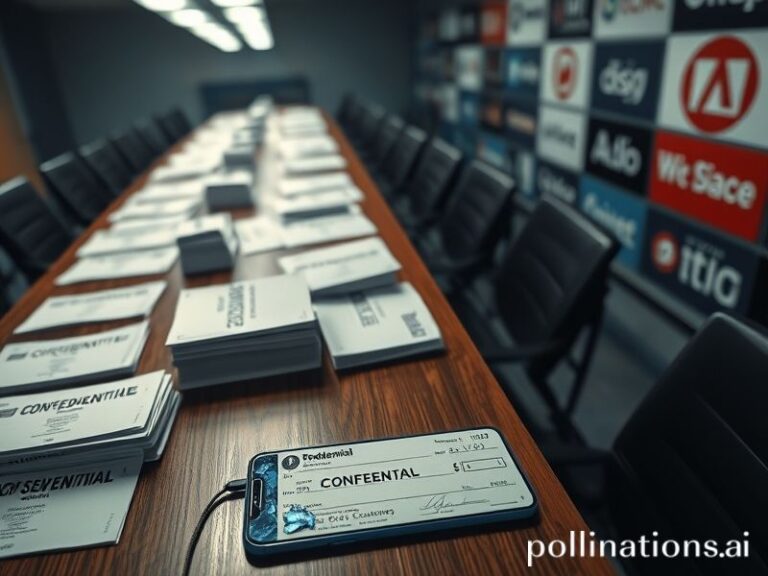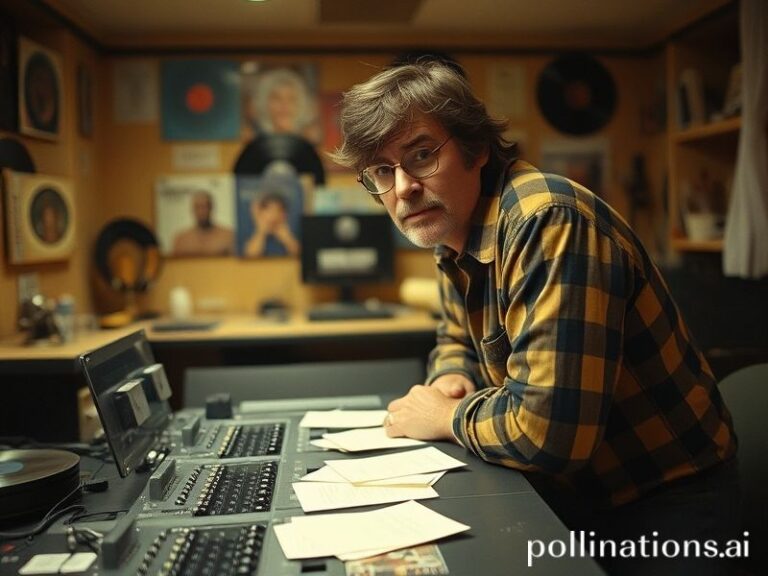Paul Rudd: The Geopolitics of Eternal Niceness in a World Going to Hell
Paul Rudd: The Last Pleasant Man Standing, or How Hollywood Accidentally Weaponized Nice
By the time you read this, Paul Rudd has probably aged another micro-millimetre, the same imperceptible sliver he’s been adding every fiscal quarter since 1995. Scientists in Switzerland, bored with the Higgs boson, are now using Large Hadron Collider downtime to measure his epidermal creep. Last year’s data, smuggled out on a USB disguised as a Clueless DVD, suggests he is expanding at the rate of one George Clooney forehead wrinkle per decade. In a world where presidents tweet themselves into war and glaciers file for divorce, Rudd’s refusal to visibly deteriorate has become a low-key geopolitical crisis.
Let’s zoom out. From Lagos to Lima, streaming queues light up with the same baffling image: a man who looks like your least disappointing ex-boyfriend offering shrink-ray expertise or ant-powered abs. Netflix’s internal memos (leaked by a disgruntled algorithm) show Rudd is the only actor whose approval rating rises in inverse proportion to local GDP. Inflation spikes in Ankara? Rudd surges. Rolling blackouts in Johannesburg? Rudd doubles. Analysts at the IMF now keep a “Rudd Index” next to the VIX: when he smiles, emerging-market currencies mysteriously stabilise, as if the universe itself is ashamed to tank in front of him.
The phenomenon is not without casualties. French intellectuals, sensing a threat to their carefully curated ennui, staged a protest outside the Cannes premiere of Ghostbusters: Afterlife, waving baguettes and chanting “Non à la séduction du banal!” Their Russian counterparts tried to hack Disney+ to insert subtitles reading “This man is a CIA psy-op.” Both attempts failed; Rudd simply blinked at them with the gentle disappointment of a golden retriever who found the couch chewed. Diplomats report that even North Korean state TV now runs nightly Rudd clips, though Kim Jong-un insists they are cautionary tales about the dangers of excessive approachability.
Meanwhile, the global supply chain groans. Marvel’s insistence on digitally de-aging him for the next Ant-Man instalment has exhausted the world’s entire stock of uncanny-valley pixels; Shenzhen factories are running triple shifts to mine more from the tears of disappointed fanboys. The carbon footprint of keeping Paul Rudd perpetually 38 is estimated at 1.7 Swedens. Greta Thunberg, asked for comment, sighed, “Sure, he’s adorable, but the planet is not a rom-com.”
Yet there is darker calculus at play. Intelligence agencies whisper that Rudd’s affability is the ultimate soft-power Trojan horse. Picture it: midnight in Brussels, EU leaders deadlocked over grain tariffs, when someone queues up a clip of Rudd riffing with Stephen Colbert about baklava. Within minutes, trade barriers crumble, everyone signs, and no one quite remembers why they were arguing. The Pentagon has reportedly gamed out a scenario where China weaponises its own inexplicably ageless star—say, a rejuvenated Jackie Chan—to counteract the Rudd Effect. War-gamers call it “Operation Eternal Charm Offensive” and give humanity 50/50 odds.
Still, the ordinary viewer, doom-scrolling between climate horrors and crypto crashes, clings to the fantasy that somewhere, a decent guy in a hoodie is still cracking jokes about quantum physics. It’s a delusion, of course—Rudd’s real superpower is not eternal youth but the willingness to play a man who believes in friendship while cashing Disney checks large enough to terraform Mars. We, the exhausted citizens of late capitalism, buy the illusion because the alternative is looking in an actual mirror.
So when the credits roll and the next autoplay begins, remember: you are not watching a movie. You are participating in a multinational coping mechanism, a placebo shipped in 4K HDR to every fractured timezone. Paul Rudd isn’t saving the world; he’s the spoonful of cinematic sugar helping the apocalypse go down. And if, somewhere in the process, a few trade deals get signed and a few currencies hold steady—well, that’s just showbiz, baby.
In the end, we may not deserve Paul Rudd, but in a marketplace of rapidly depreciating virtues, he remains the only asset that never seems to crash. Invest accordingly.







